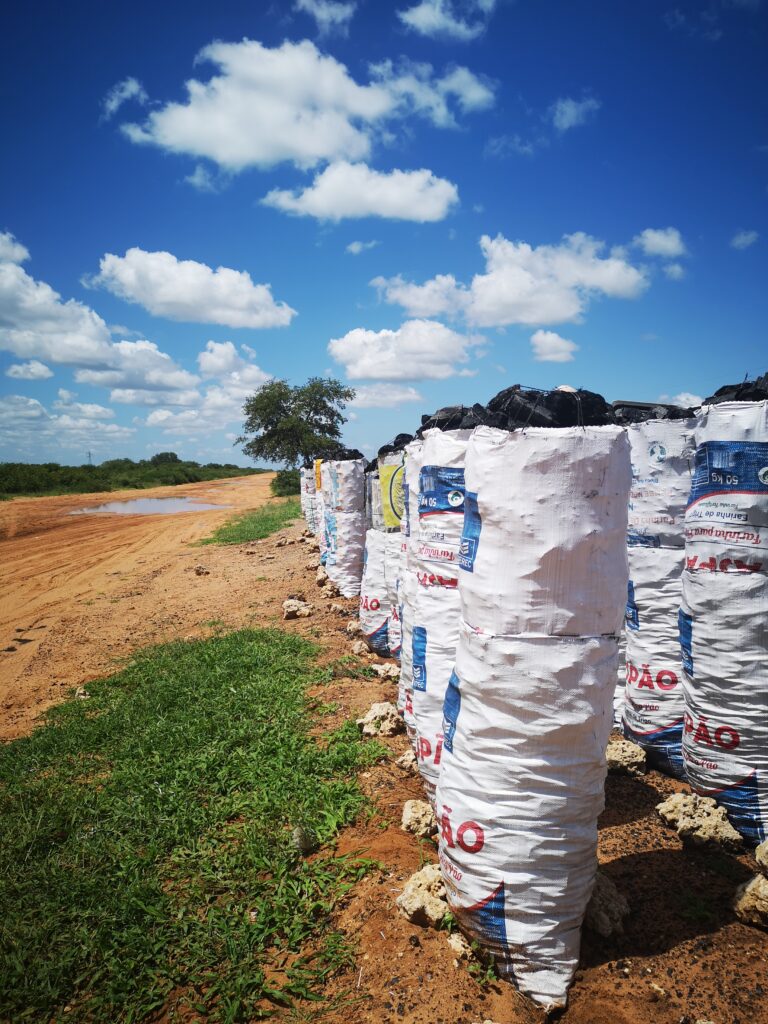Projects

Photo by Peter Hargreaves.
You can see a (nearly) full list of projects on the Edinburgh Research Explorer here.
Currently keeping us busy:
- SECO: Resolving the current and future carbon dynamics of the dry tropics. A new NERC Large Grant combing fieldwork, remote sensing, modelling and data assimilation to better understand the carbon cycle of the world’s savannas and dry forests.
- SEOSAW: a Socio-Ecological Observatory for Southern African Woodlands. I maintain long term sample plots in Mozambique and Tanzania as part of this project. The SEOSAW office is co-hosted between LANDteam and the University of Witswatersrand.
- African Savanna Cyclone Experiment (CyclEx). A long term study of how Cyclone Idai affected the savannas and woodlands of central Mozambique.
- JEO4C: Just Earth Observation for Conservation.A large ESRC grant looking at how the use of remote sensing is changing how conservation is practiced, and the ways this might exacerbate existing inequalities.
- A Knowledge Exchange Partnership with Plan Vivo, developing a tool to quantify soil carbon changes in agroforestry projects.
- A new (2025) NERC grant assessing the outcome of restoration projects in African forests and savannas.
- The National Center for Earth Observation (NCEO) support a post doc in LANDteam focused on improving woody biomass mapping using remote sensing and deep learning.
- As well as our PhD projects…
Key past projects:
- Renewable Energy FOR MAputo: transforming the charcoal sector to power achievement of the SDGs (REFORMA). Understanding the social and ecological impacts of the charcoal trade in southern Mozambique.
- J-REDD+ supporting Jamaica’s national REDD+ strategy (led by IIED).
- Coping with COVID-19. A project looking at how livelihoods are changing in rural Mozambique during the COVID-19 pandemic
- Satellite Monitoring for Forest Management (SMFM). Developing new tools for monitoring the dry forests, woodlands and savannas.
- Nature4SDGs: Nature’s contribution to poverty alleviation, human wellbeing and the SDGs.
- ESA CCI BIOMASS: mapping the world’s forest biomass.
- ACES: Abrupt Changes in Ecosystem Services and Wellbeing in Mozambican Woodlands? A large ESPA funded project, looking at how livelihoods change as land is converted from woodland to agriculture in Mozambique. ACES has its own website here .
- SHAMBA. A simple model for carbon accounting in small holder carbon payment schemes. Used by some Plan Vivo certified projects.
- Streamlining Monitoring for Smallholder and Community PES (SMS-PES) looking at how “best” to monitor the benefits of payments for ecosystem services projects. We looked at this from several angles including scientific accuracy, the values of the buyers of the service, and the social implications of different types of monitoring. This project was led by IIED. See the ESPA page for more details.
- A grant from IIED and the WWF Luc Hoffmannn institute supported us to apply a novel methodology to quantify current deforestation and forest degradation in southern Africa (Ryan et al, 2012; McNicol et al 2018, Nature Comm.)
- iREDD+ (Impacts of Reducing Emissions from Deforestation and Forest Degradation and Enhancing Carbon Stocks), an EU project looking at the impacts of reducing emissions from deforestation in SE Asia. We focused our work on swidden agriculture and its intensification, as well as the conversion to rubber plantations, all in Northern Laos.
- A project in Tanzania collaborating with The Mpingo Conservation and Development Initiative. We developed new methods for rapid carbon stock assessment, with the goal of fusing community-based ground measurements with satellite monitoring. The work also includes the development of a VCS methodology to assess the impact of switching from a late-burning to an early-burning fire regime, including quantifying the impacts on woodland biomass.


Comments are closed
Comments to this thread have been closed by the post author or by an administrator.